Would the Swiss model suit a post-Brexit Britain?
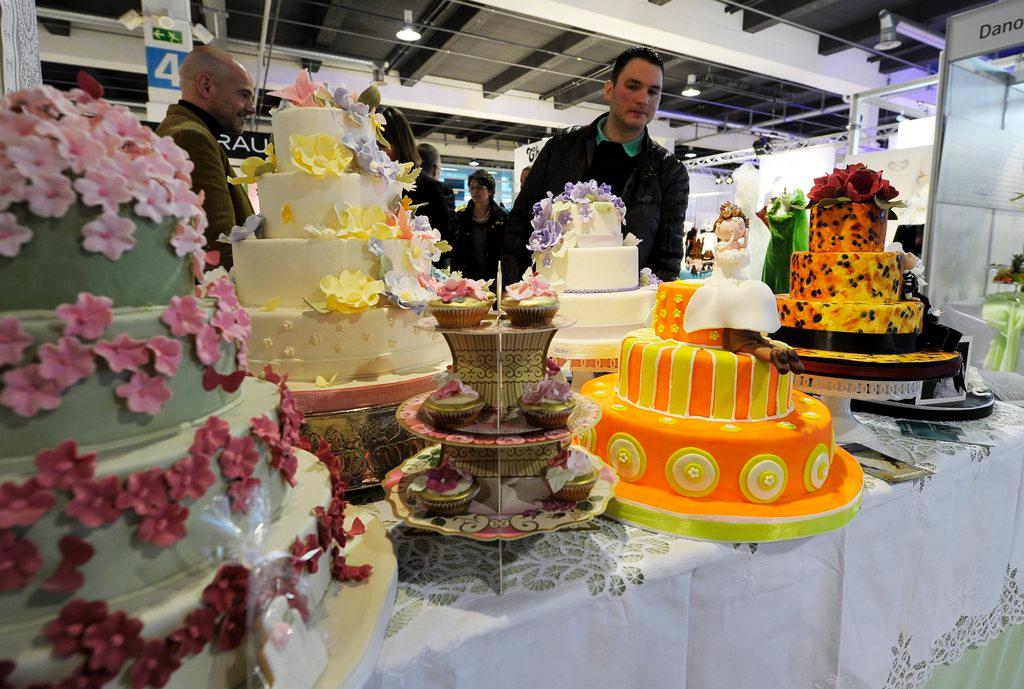
After British voters' decision on June 23, 2016, to leave the European Union, many Eurosceptics say post-Brexit negotiations should be based on Switzerland’s bilateral treaties with Brussels. Rubbish, reply opponents, pointing to the conditions Switzerland faces for Single Market access and its absence at the decision-making table.
“I want to create a ‘Britzerland’,” Boris Johnson, London’s then mayor and leading anti-EU campaigner, told the right-leaning Swiss news magazine Weltwoche in December 2012.
His vision was for Britain and Switzerland to be founding members “of a new alliance – outside the European Union” which would enjoy free trade with the eurozone and have a say in negotiating the conditions of this trade arrangement but which wouldn’t have to sign up to any of Brussels’ plans for further integration.
Since then, many other supporters of Brexit – British exit from the EU – have become convinced that the Swiss model offers a bright future in which countries outside the EU thrive, sign free trade agreements with whomever they want and have control of their borders.
“Swiss show the way if we exit EU,” declared The SunExternal link, an anti-EU British tabloid, in November 2014.
Single Market access
So can the Brits have their cake and eat it, like some Eurosceptics think the Swiss do? Would the Swiss model suit Britain?
“No, the Swiss model wouldn’t suit Britain for a couple of reasons,” says Hugo Dixon, chairman and editor-in-chief of InFactsExternal link, a journalistic enterprise making a facts-based case for Britain to stay in the EU.
“First, as with Switzerland, Britain’s most important industry is financial services. By being part of the EU, Britain has a passport that allows it to offer financial services across the entire EU without having to relocate its activities to France, Germany, Italy and so on. Switzerland does not have such a passport for financial services. Even though it has wanted one, the EU has not given it one,” he told swissinfo.ch.
“Partly as a result of that, the big Swiss investment banks actually run their investment banking operations out of London. If Britain had a Swiss deal, we would have to shift some of our financial services activities out of Britain either to the Continent or to places like Ireland.”
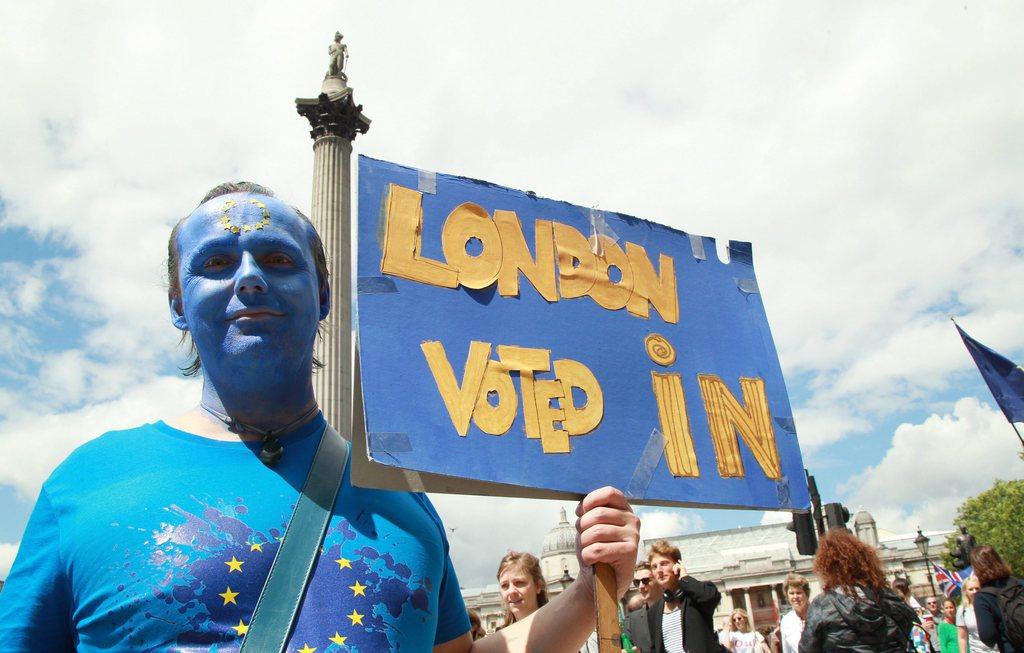
More
Brexit and the Swiss connection – a guide
Since almost halfExternal link of British exports head to the rest of the European Union, the key question in any post-Brexit negotiations will be access to the European Single MarketExternal link. But is Switzerland the answer?
Around 55% of Swiss exportsExternal link head to the EU (6% of EU exports go to Switzerland), but the Swiss government has itself admittedExternal link that “the existing barriers to market access place Switzerland at an economic disadvantage”.
“With no legal certainty on EU market access, the cross-border activities of Swiss banks are in a (legally) grey area, i.e. Swiss financial intermediaries can only expand their EU business by way of subsidiaries in the EU, which means that Switzerland loses out in terms of jobs, value creation and tax receipts. This also makes it difficult to obtain economies of scale and thus a more cost-effective handling of financial services,” it said in 2009.
“Moreover, financial intermediaries incur substantial extra costs when they have to use subsidiaries. Finally, there are also restrictions with respect to the selling of products. Even the foreign branches of Swiss institutions are affected by this and are restricted in sales and distribution of financial products developed in Switzerland.”
Free movement of people
The other main issue for Brexit supporters is immigration. Many want to put an end to the free movement of peopleExternal link – one of the fundamental tenets of the EU – and not be told by Brussels who they can and can’t let into the country (although Britain can already refuse entry to EU citizens for reasons of public security).
The catch, as Dixon points out, is that it is “practically impossible” to get full access to the Single Market without agreeing to the free movement of people – “and partly because of this, many Eurosceptics in Britain are saying they no longer want to copy Switzerland”.
“The Swiss have to accept free movement of people between Switzerland and the EU, so that wouldn’t suit what the Eurosceptics in Britain want,” he said.
But what exactly do Eurosceptics want? The Remain camp has highlighted the lack of details given by their opponents on life after leaving the EU. On April 20, Michael Gove, the pro-Brexit justice secretary and a leader of the official “Vote Leave” campaign, said Britain would join countriesExternal link like Bosnia, Serbia, Albania and Ukraine in a European free trade zone.
Matthew Elliott, chief executive of “Vote Leave”, told swissinfo.ch he thought Britain would have a “bespoke model of our own”.
“But we think the Swiss deal is better than the Norwegian deal – they really do have to accept the directives and regulations coming from Brussels to have access to the Single Market. We’d much rather have a deal more like the Swiss one, done on a bilateral basis, but I think it will be a unique deal to the UK,” he said at a debate in Geneva organised by the British Swiss Chamber of Commerce.
EU reluctance
Bern’s already strained relationship with Brussels was tested even more in February 2014 when 50.3% of Swiss voters backed curbs on EU immigration. The Swiss government is still trying to work out how to implement that without violating free movement.
What’s more, all this assumes that if Britain pushed for a Swiss-style deal, the EU would play ball. Switzerland is already a minor headache for the EU and it seems unlikely Brussels would be keen to create similar problems with Britain.
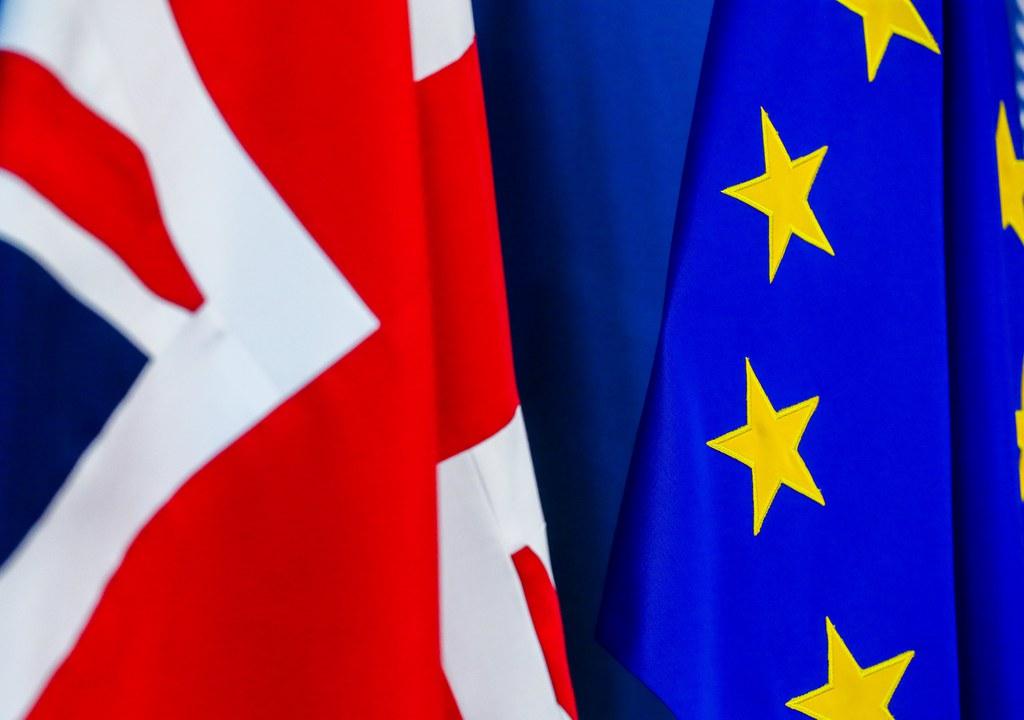
More
Brexit – the view from Switzerland
“Brussels has pretty much made clear that they don’t like the Swiss deal and in fact want to change it. So I think there would be great reluctance to do a repeat Swiss deal on the side of the EU,” Dixon said.
“The other thing is that there will also be great reluctance on the part of the EU to make Britain’s divorce a velvet one. They will be very scared that if it’s too easy for Britain to leave and Britain gets too good a deal from leaving, then other countries will say ‘well I’m going to have what I like – I don’t like this bit of the EU and I don’t like that bit of the EU’ and the whole thing will just unravel.”
Complex bilaterals
Former Swiss interior minister Pascal Couchepin agrees, pointing out in MarchExternal link that “in fact, Switzerland does not have a ‘deal’, it has around 120 bilateral agreements with the EU”.
Explaining why the Swiss model would be a poor choice for post-Brexit Britain, Couchepin said the Swiss negotiations took many years to complete – more than the two years Britain would have to renegotiate its relationship with the EU, according to Article 50External link of the Lisbon Treaty.
“Given the complexity of the Swiss bilateral agreements, it isn’t clear that EU member states would be willing to replicate this structure with another country,” he said. Especially a country that had just voted to leave, something Switzerland has never done.
“In recent years, Switzerland has paid to help to integrate new members into the EU. We have also accepted EU standards on exported goods. However, we have no control over these regulations and, unlike the European Economic Area countries, we have only limited access to the crucial meetings during which working parties design legislation. If the UK were to opt for this position, it would undoubtedly reduce Britain’s influence within the trading bloc,” Couchepin warned.
Free trade agreements
Undeterred, British Eurosceptics also look wistfully at Switzerland’s free trade agreement with China.
“It’s true that we would be free on our own to negotiate trade deals, but that would be a bad idea because if we’re on our own, we’re going to be less likely to get a good deal than if we’re negotiating as part of a bloc with 500 million people and the largest economy in the world,” Dixon said.
“Take China. The Swiss deal with China was a very unbalanced deal that involved the Swiss opening their market to Chinese goods pretty much immediately and the Chinese only opening their market to Swiss products gradually, phased over many years.”
Britain, like Switzerland, would also have to contribute to the EU budget.
“So you can’t really have your cake and eat it,” Dixon concludes. “If we want to have full access, frankly we’re much better staying in the EU where we are the rule maker rather than the rule taker. If we really don’t want to have free movement of people and we don’t want to pay into the budget, then we’re going to have to accept that we won’t have full access to the market. And that will be bad for jobs and bad for prosperity.”
Britain in Europe
March 25, 1957: The Treaty of Rome is signed by (West) Germany, France, Italy and the Benelux countries, creating the European Economic Community (EEC). Britain refuses to join and proposes the foundation of the European Free Trade Association (EFTA) with Switzerland, Sweden, Norway, Denmark, Austria and Portugal.
1961: The British government, realising it has backed the wrong horse as economic growth in the EEC rockets, requests the beginning of negotiations on accession to the EEC. But…
1963 and 1967: French President Charles de Gaulle vetoes British attempts to join the EEC.
1970: After De Gaulle leaves office, negotiations for British entry begin under pro-European Conservative Prime Minister Edward Heath.
January 1, 1973: Britain enters the EEC under Heath, along with Ireland and Denmark.
October 1974: Labour wins a general election under Harold Wilson. A manifesto promise had been a referendum on staying in the EEC.
June 5, 1975: In a referendum two-thirds of voters decide to stay in the EEC. All national newspapers – and future Prime Minister Margaret Thatcher – had supported staying in.
January 2013: In an attempt to unify his party, Prime Minister David Cameron announces there will be a referendum on EU membership if the Conservatives win the 2015 general election (which they do).
June 23, 2016: 51.9% of British voters decide to leave the EU.
March 29, 2017: The British government triggers Article 50 of the EU’s Lisbon Treaty, the formal start of the two-year process by which Britain will leave the European Union.

In compliance with the JTI standards
More: SWI swissinfo.ch certified by the Journalism Trust Initiative

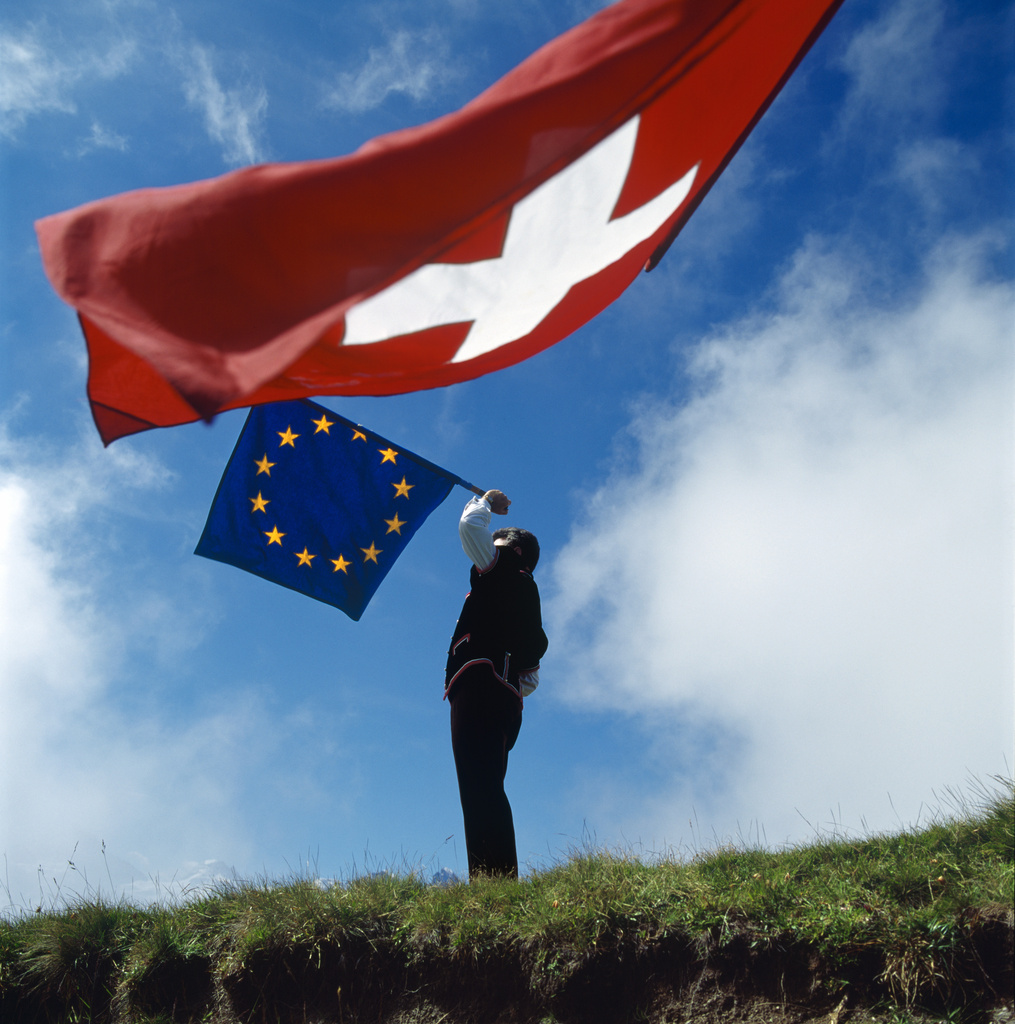
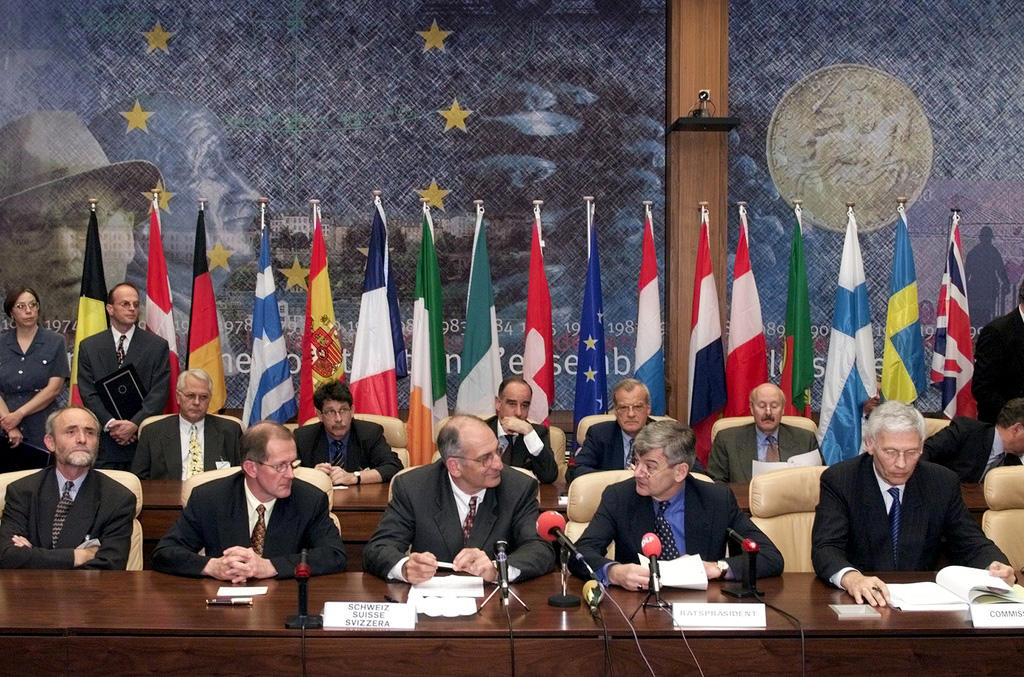

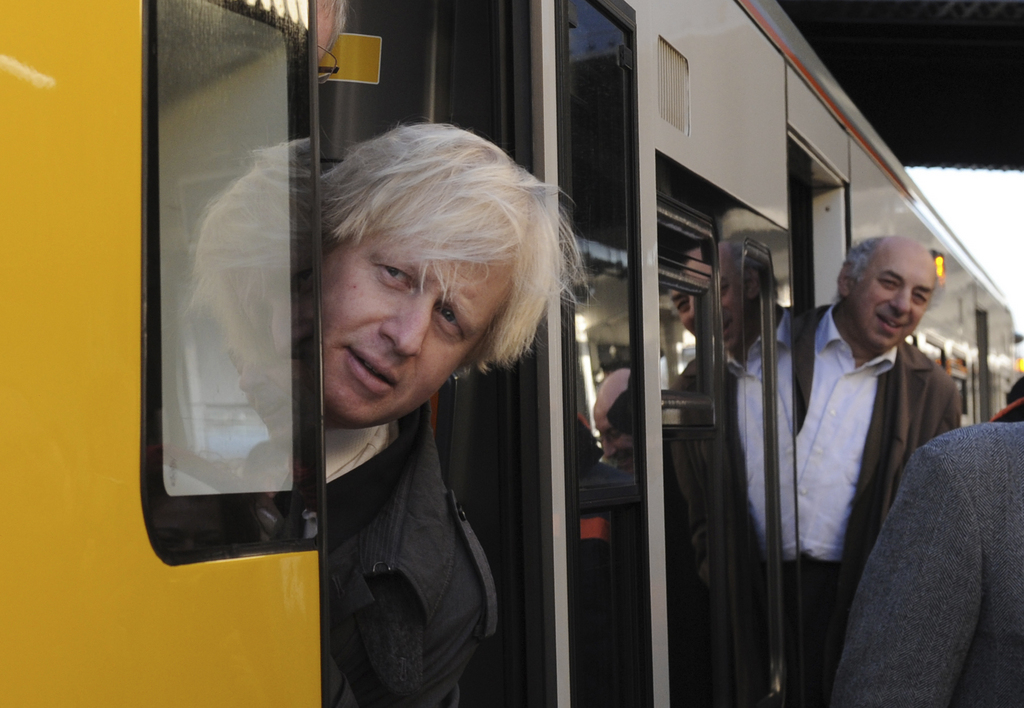
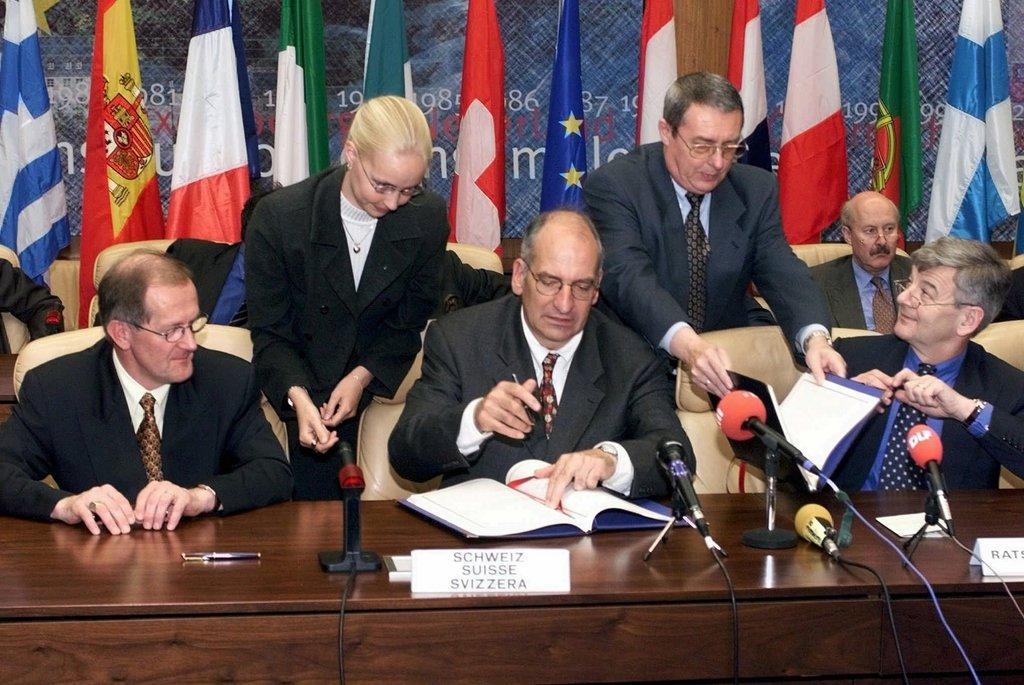

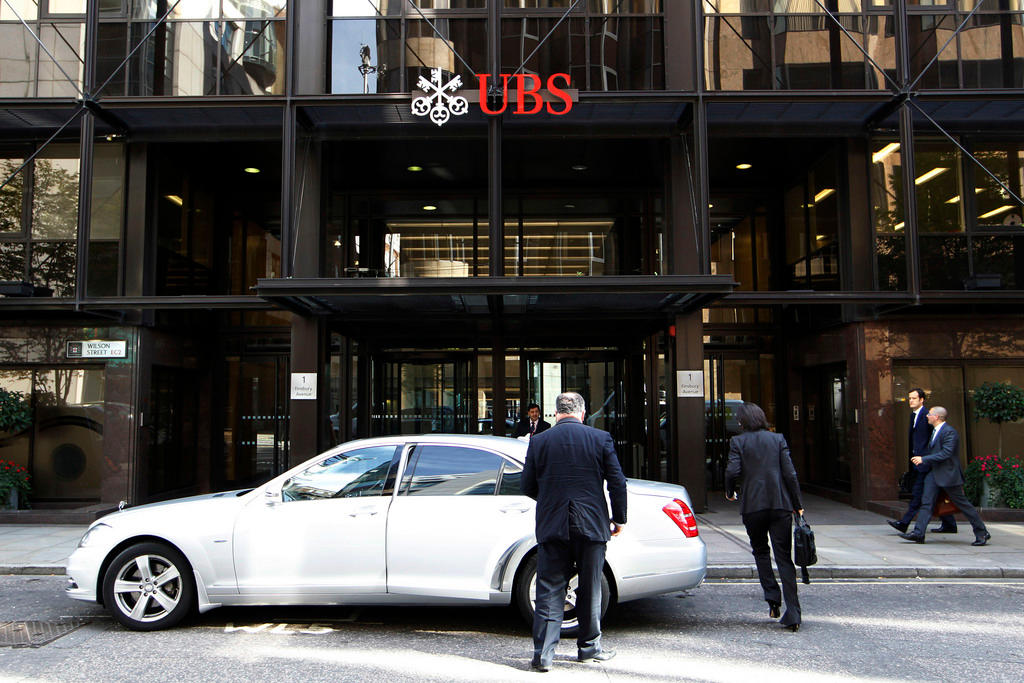

You can find an overview of ongoing debates with our journalists here . Please join us!
If you want to start a conversation about a topic raised in this article or want to report factual errors, email us at english@swissinfo.ch.